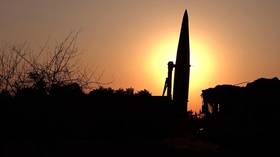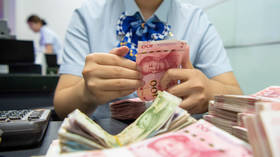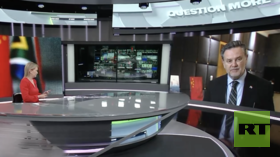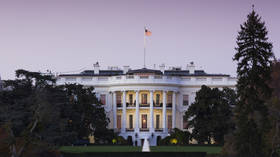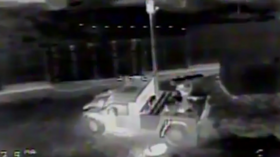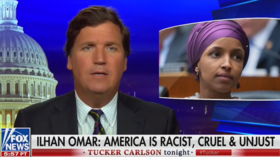‘We have nothing to quarrel about’: Russians & Ukrainians speak for unity at televised conference
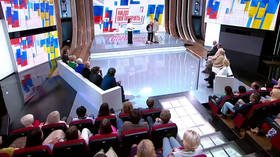
As politicians in Russia and Ukraine take the first steps to renew talks after years of strained relations, people in both countries have come forward in a televised “bridge” show to call for unity between the two nations.
Russians and Ukrainians have engaged in a two-hour-long civil dialog for the first time in several years, as part of a televised ‘politics-free’ discussion show ‘We need to talk’ hosted by the Russian state channel Rossiya 1. The show was originally supposed to be co-hosted by a private Ukrainian channel NewsOne – until it canceled its participation due to death threats against its journalists and pressure from the government in Kiev.
Rossiya 1 still managed to give voice to both Russians and Ukrainians, including both prominent public figures and ordinary people, by inviting some of them to its Moscow studio and contacting others via Skype.
‘Not our war’
Separated by years of civil conflict in eastern Ukraine and a bitter row between Moscow and the post-Maidan coup authorities in Kiev, the show participants uniformly called for unity between the two neighboring nations and an end to the senseless conflict plaguing the relations between them.
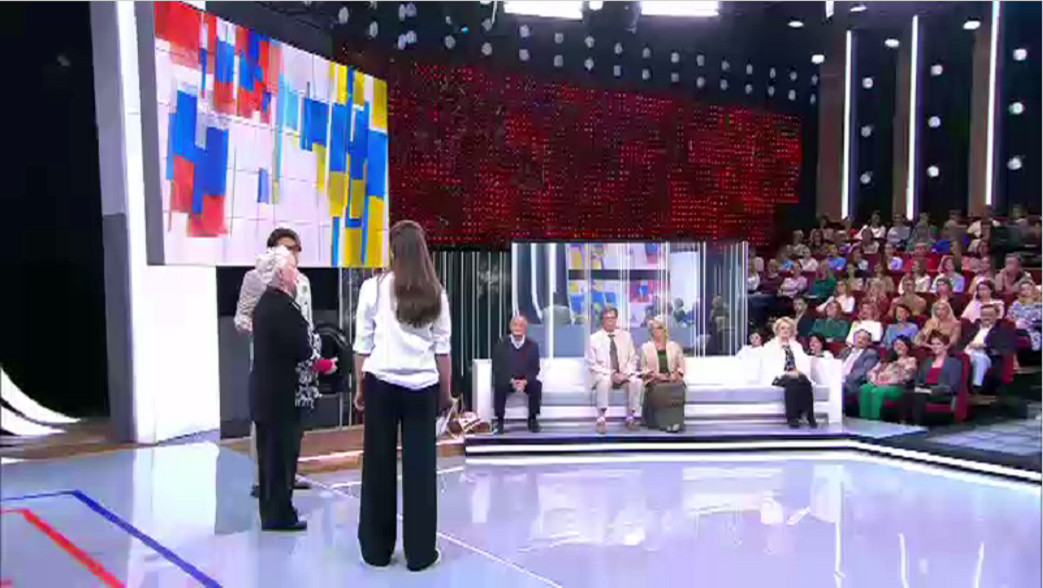
Many pointed out that the Russians and Ukrainians historically enjoyed close cultural ties and good relations, while calling the present sorry state of affairs a “purely political” matter.
“This is not our war, this is a war waged by oligarchs,” some Ukrainians told the Russian journalists, referring to the conflict in Eastern Ukraine.
The ongoing conflict was unleashed by the February 2014 coup, in which President Viktor Yanukovich was ousted in favor of a US-backed coalition. The new government in Kiev has blamed Moscow for citizens in several regions refusing to recognize its rule; Donetsk and Lugansk took up arms against government troops sent to force their compliance, while Crimea held a vote to rejoin Russia in March 2014.
Also on rt.com ‘Russians and Ukrainians are one people,’ Putin tells Oliver StoneSince then, official contacts between the two countries have been largely reduced to a minimum. Though Moscow has repeatedly demonstrated its readiness for dialog, Kiev turned to its Western backers and branded Russia an “aggressor state.”
Such a situation left many people on both sides of the border stranded. Ukrainian authorities drastically tightened the entry rules for the Russians, banning all males between the ages of 14 and 60 entering the country at one point. That restriction was later lifted, but Russians willing to visit Ukraine still have to go through “enhanced vetting” and may get turned away at the border.
Kiev has also banned certain Russian public figures, performers, actors and singers from entering the country entirely, designating them a “national threat.” In addition, the Ukrainian website Mirotvorets (Peacekeeper) has published a ‘hit-list’ that designates people “enemies of the state” for such things as visiting Crimea without Kiev's approval, or even simply criticizing the Ukrainian government or publicly supporting Moscow's position.
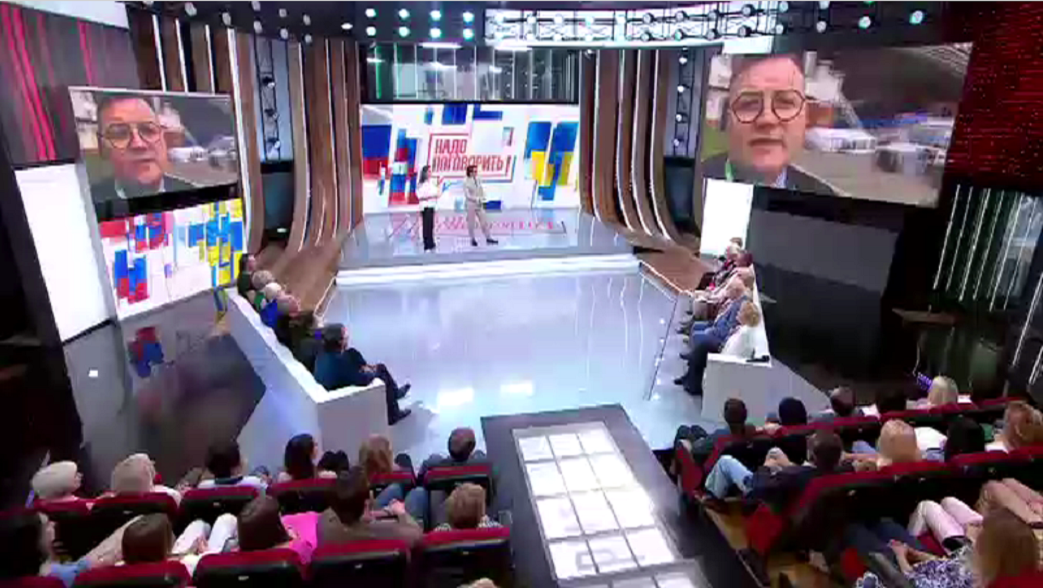
Over the years, the list of designated 'enemies of the state' has grown to several thousand people, including opposition politicians, human rights activists, bloggers, journalists, filmmakers and even pop musicians – some of them international celebrities like British rock legend Roger Waters or US-born boxer Roy Jones Jr, who became a Russian citizen in 2017.
Many participants of the televised conference, including those who were born and lived in Ukraine for decades before moving to Russia for various reasons, complained about not being able to see their relatives for years due to Kiev’s restrictive policies.
‘Everyone wants peace’
Others said they would never break ties with the people on the other side of the border. One Ukrainian man even said that if Kiev closed the official border crossings with Russia, he would cross on foot elsewhere. Countless guests also recalled their personal positive experiences related to the both countries, repeatedly explaining that relations between the two peoples have always been warm and free of any grudges.
“Everyone has got tired of politics, everyone wants peace,” said Ukrainian producer Yury Falesa, speaking in particular about the plight of the Russian-Ukrainian families that ended up separated because of the breakdown in relations between Moscow and Kiev.
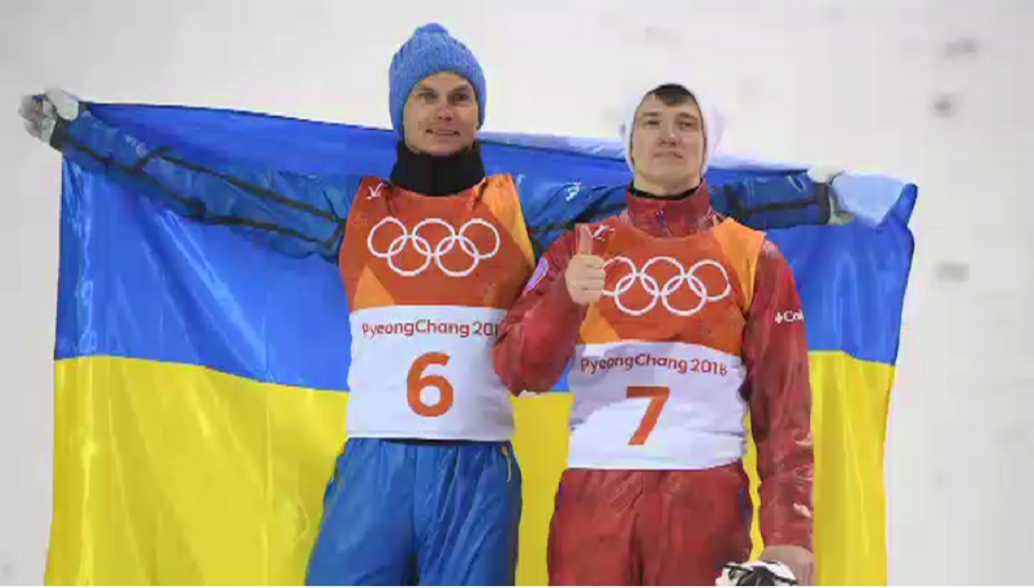
People on both sides welcomed the televised conference, arguing that revival of a meaningful dialog is long overdue.
“I am so glad that the discussion has been launched. Many also spoke in favor of staging similar televised conferences in the future. People should speak, they should not live in hatred,” said Ukrainian actress Lidia Chashchina, who traveled to Moscow from Ukraine to take part in the event.
We need to live in peace. We have nothing to quarrel about.
Will there be ‘thaw’ in relations?
The televised conference was praised by the director of the Kiev Center for Political and Conflict Resolution Studies, Mikhail Pogrebinsky, who expressed hope that such a genuine dialog between people could contribute to a “thaw” in relations between Russia and Ukraine.
The Kremlin has likewise welcomed the initiative.
Also on rt.com Putin discusses Ukrainian conflict, prisoner exchange, in first direct phone call with Zelensky“Despite the political and diplomatic ‘turbulence’ between the two nations one should not abandon a civil dialog between the people,” said Dmitry Peskov, spokesman for Russian President Vladimir Putin.
While some of the show’s guests expressed hope that Zelensky would eventually change Ukraine’s political course and try to restore relations with Russia, the chilly reception the endeavor received in Kiev seems to suggest otherwise.
Prime Minister Vladimir Groisman claimed that airing of the show would “play into the hands” of Ukraine’s “enemies.” The party of former President Petro Poroshenko, who lost the April runoff vote to Volodymir Zelensky in a landslide, denounced the conference as Moscow’s “influence tool” aimed at swaying Ukrainian opinion ahead of the snap parliamentary elections.
Zelensky called it “a cheap but dangerous PR stunt” designed to divide Ukrainians into two camps.
Also on rt.com Ukrainian TV drops show co-hosted with Russian broadcaster over ‘death threats’ & govt pressureThe NewsOne channel was subjected to a massive pressure campaign by the authorities and nationalists in Ukraine, aimed at forcing it to drop out of the conference project. The broadcaster complained about a tremendous smear campaign that “a number of political parties” had launched ahead of the show, with protest rallies held outside of its offices. The channel’s journalists also received “unambiguous death threats.”
Ukraine’s security service, the SBU, also took aim at the channel, calling on other government bodies to sanction it for helping “the aggressor country” run what it said was “an anti-Ukrainian propaganda campaign.” The SBU and the Prosecutor General’s office went so far as to launch a joint probe into “state treason” charges against the management of NewsOne.
Zelensky has recently contacted Putin by phone, in a first direct conversation between the two leaders – though it took him more than a month after his inauguration to do so. Meanwhile, according to NewsOne, some 70 percent of Ukrainians are waiting for direct talks between Moscow and Kiev.
Subscribe to RT newsletter to get stories the mainstream media won’t tell you.


